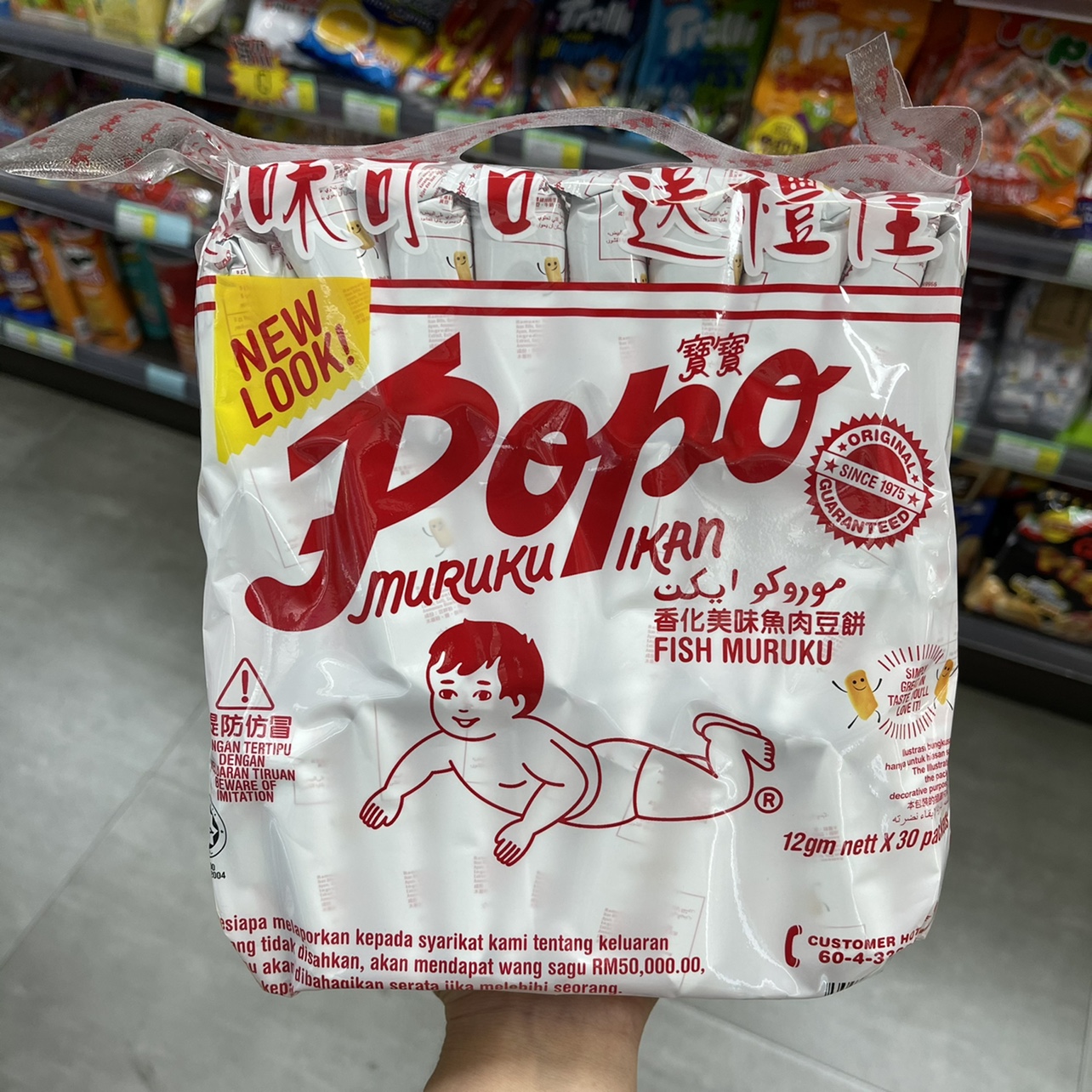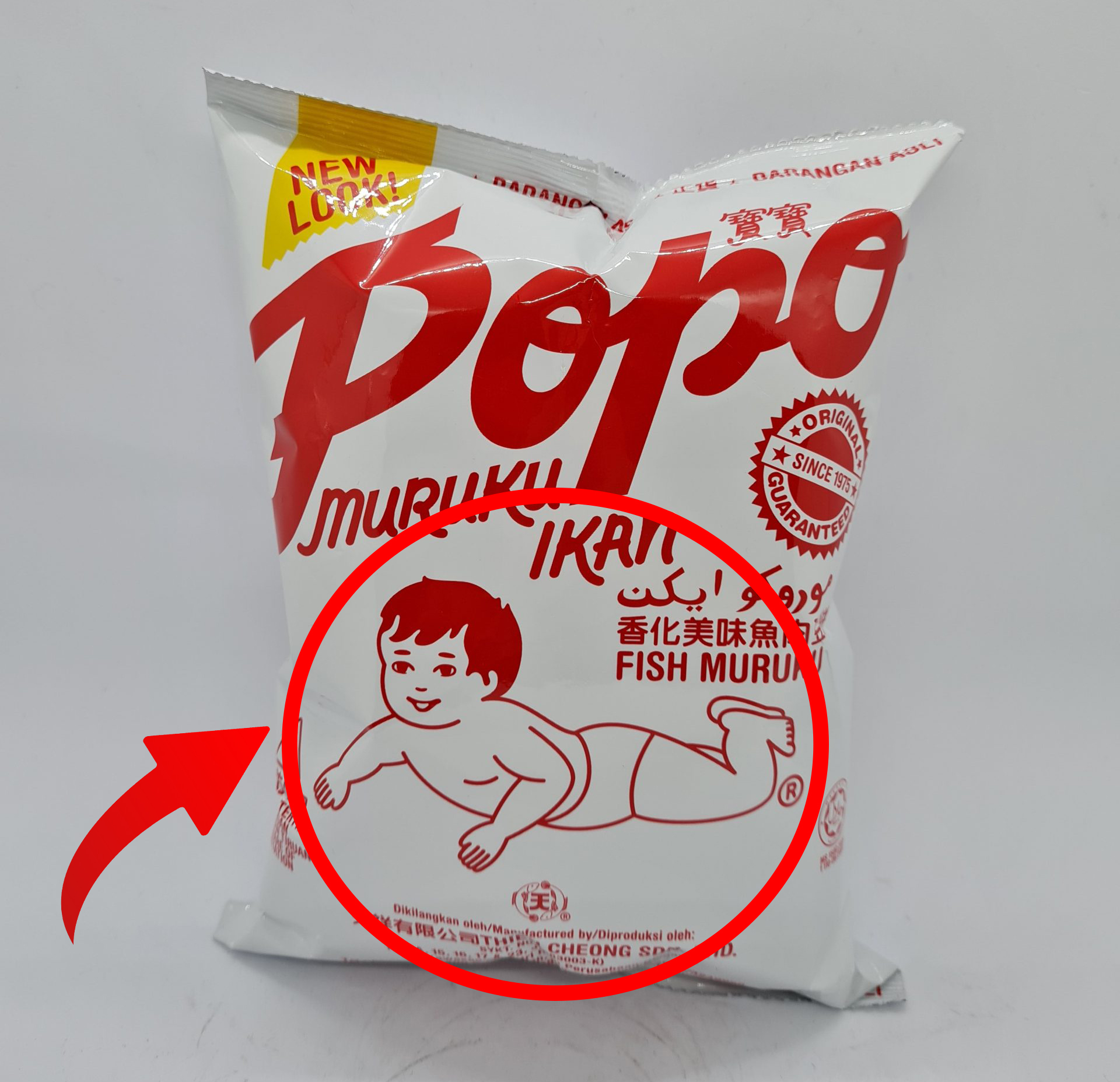Here's The Sweet Reason Why There's A Baby In Diapers On PoPo Fish Muruku Packets
Contrary to popular belief, PoPo is a Malaysian Chinese brand, not Indian.
As Malaysians, there's no denying that we love our murukku
The staple Indian snack is a must in every household during Deepavali. Derived from the Tamil word "twisted", murukku originated in South India and it is especially popular in Tamil Nadu, Kerala, and Andhra Pradesh.
Perhaps, you might have grown up eating PoPo Fish Muruku instead
Y'know these white and red packets with lots of different languages on the packaging?
Since murukku originated in India, one might assume that PoPo Muruku Ikan was founded by well, an Indian, right? Interestingly enough, it's owned by a Malaysian Chinese company.
The late Foong Chek Lung grew his company, Thien Cheong, from his humble beginnings, selling imported household products door to door on a bicycle, to the manufacturing plant it is today in Penang.
In an effort to reinvent the traditional Indian snack, Thien Cheong ventured into processing anchovies (ikan bilis) and began making PoPo Fish Muruku in the 1970s.
The founder spent countless nights with a frying wok, rectangular cutter, and his bare hands to come up with a twist for the well-loved snack
And it certainly paid off. We can all probably agree that the flavour makes it hard to stop eating at just one packet.
Aside from the addictive flavour, though, there's actually a sweet backstory of why there's a topless baby on the PoPo packet
According to the company, Foong Chek Lung chose the iconic baby logo because "it served as a reminder for him to work hard for his firstborn son and family", and named it 'Popo' (or 'Baobao' in Mandarin), which literally means 'baby'.
The name became a success because it is catchy and easy for customers to remember.
Today, PoPo Fish Muruku has various flavours
Besides the original, there's 'sweet and spicy', 'seaweed', and 'spicy chicken'.
The popular tidbit since 1975 has since become an affordable, fond snack among fans and it can still be found in many sundry shops and supermarkets today.



